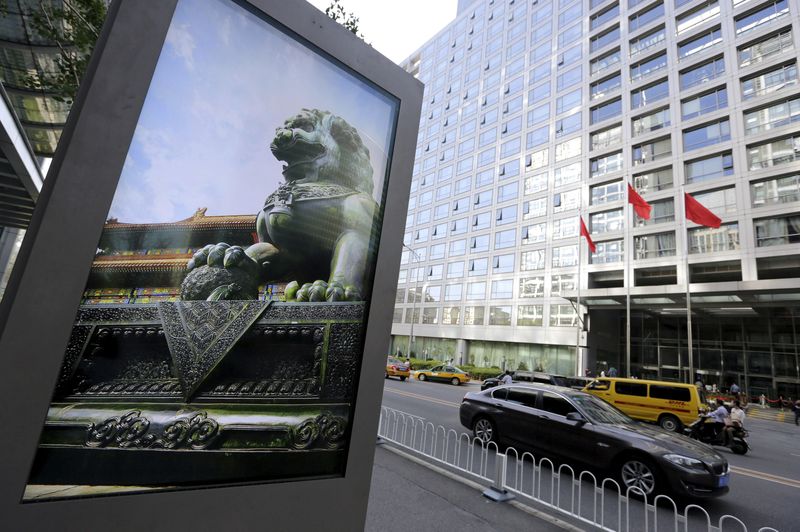Exclusive-China stocks regulator likely to promote law enforcement chief to vice chair, sources say
2024.07.30 05:32
HONG KONG/BEIJING (Reuters) – China’s securities regulator is likely to promote its head of law enforcement to the role of vice chairman, four sources said, a move that underscores Beijing’s determination to tighten oversight of the 37 trillion yuan ($5.1 trillion) stock market.
Li Ming, chief of the enforcement bureau of the China Securities Regulatory Commission (CSRC), will replace vice chairman Fang Xinghai, who is set to retire soon, according to three of the sources who have direct knowledge of the matter.
All the four sources declined to be named as they were not authorised to speak to the media.
CSRC did not respond to a faxed request for comment. Fang did not respond to an emailed request for comment. Li could not be reached for comment.
Li’s promotion comes as President Xi Jinping seeks to foster a capital market able to channel resources into strategic sectors such as chip-making and high-end manufacturing amid increasing economic rivalry between China, Europe and the United States.
It also comes after the CSRC vowed to regulate the market with “teeth and thorns” under chairman Wu Qing.
Li’s promotion is “already in the process” and will be announced in due time, said one of the sources.
Li currently heads the enforcement bureau, which is responsible for probing illegal securities activities, handing criminal cases to the relevant authorities and facilitating cross-border investigations.
During a media conference in February, Li vowed to crack down on insider trading and market manipulation as well as stamp out securities fraud in a bid to protect investors.
“Punishment will be more and more severe, and the cost of breaking the law will only be higher and higher,” Li said.
A CSRC veteran, Li started working in the regulator’s Listing Department, which oversees share sales, before heading in 2016 the China’s National Equities Exchange, a bourse for trading over-the-counter shares of public companies, according to Caixin.
Li returned to the Listing Department as director-general in 2020 and was appointed to lead the enforcement bureau in 2022, the Chinese media group added.
MARKET DEVELOPMENT
China’s regulators have been scrutinising old business deals and the personal bank accounts of senior executives as they ramp up inspections of IPO hopefuls, a process that has forced firms to drop listing plans and investment banks to cut jobs and pay.
The stock market scrutiny coincides with a “common prosperity” drive aimed at addressing social and income inequality as economic growth slows.
China will “tighten regulation to promote the sound and stable development of the capital market”, according to a resolution issued after a key Communist Party meeting held earlier this month.
Li’s predecessor Fang is seen as the most market-oriented senior official at the CSRC. Stanford-educated Fang has been a strong advocate of market reforms.
Fang became CSRC vice chairman following a 2015 market crash, and under his watch, China opened its stock and bond markets wider to foreign investors and introduced a slew of derivative products.
In recent years, however, the CSRC has restricted short-selling and cracked down on computer-driven quant funds – both seen as contributing to market volatility.
Before becoming CSRC vice chairman, Fang worked as an economist at the World Bank in Washington, as well as at the China Construction Bank (OTC:) and Galaxy Securities among others.

He was also deputy general manager of the Shanghai Stock Exchange, and had a role in the Shanghai government promoting the city as a financial centre.
($1 = 7.2502 renminbi)








